9 Tips to Take Your Performance to the Next Level
Whether you run marathons or attend a weekly zumba class, it’s important to take care of your body and set yourself up for success. If you feel like you’re stuck or your progress has hit a wall, you’re in the right place! Here at Revitalize PT, we love empowering female athletes and helping them reach their full potential!
There is all sorts of crazy exercise advice out there and it can be hard to know what to actually believe. That’s why we wanted to come up with these 9 helpful tips from a Physical Therapist to give you real facts about optimizing your performance. These are important no matter what level athlete you are and at all ages. Of course, if you feel like you need more guidance or specific recommendations, please reach out at conact@revitalize-pt.com . We would love to help you stay active and keep doing what you love.
Tip #1: How are you Fueling your Body?
It can be nearly impossible to get a straight answer on what is the best diet for a healthy lifestyle. We believe that fueling your body should be less about which diet and more about natural and nutritious choices. Each macronutrient (fat, carbs, and proteins) have their own specific function within the body that make them essential.
Fat is important for overall bodily functions, but you want to make sure you are choosing the right ones! Unsaturated fats are considered healthy and can contribute to better heart health when consumed in moderation! This kind of fat is found in things like avocado, olive oil, canola oil, and fish oils. You want to avoid saturated and trans fat as those are known to increase your risk for a number of health concerns. You’ll find these fats in things like animal products, margarine, and junk food.
Protein is key for building strong muscles and fueling muscle recovery after a tough workout. When you don’t get enough protein, you won’t be able to build muscle and your body might start breaking down existing muscle to get what it needs.
Carbs are the energy source for your workouts! Without enough simple carbohydrates, your body will feel fatigued leading to a less than satisfactory workout. Choose good carbs in your diet such as whole grain products- the less processed, the better!
Micronutrients such as Vitamins, calcium, or magnesium are very important for optimal body function. If you’re looking for more information on this, contact us at contact@revitalize-pt.com for more guidance!
Tip #2: Letting your Body Recover
While it might feel like the opposite of what you should be doing, rest is very important if you want your body to be able to perform at its best. The goal is to do lower intensity exercises 6-7 days a week or higher intensity exercises 3-5 days a week. For example, weightlifting and running should only be done 3-5x/week with rest days in between. For walking or yoga, it is safe to do those 6-7x/week. Insufficient rest leads to injuries, burnout, and possibly an unhealthy relationship with exercise. It’s important to know your body’s limit for when to push through a workout vs. taking a break to rest up.
Tip #3: Catching Enough ZZZs?
Similar to the importance of rest days, sleep is important for recharging your body and your mind! Without good quality sleep or at least 7-8 hours per night, you are putting your body at a higher risk of injury during sports and exercise! You’ll also be more likely to skip your daily workout if you’re exhausted.
That being said, if you suffer from insomnia or have difficulty falling/staying asleep, exercise with the appropriate amount of rest days can actually improve the quality of your sleep!
Tip #4: Fix any “Lady Issues’ you’ve got going on!
You might be thinking, what does my pelvic floor have to do with this? A healthy pelvic floor is essential if you expect your body to keep up during high intensity activities such as running, weight lifting, and cycling.
With every jump or step you take, the force of your feet hitting the ground is transmitted up your legs and absorbed by all the muscles in the lower extremity- including your pelvic floor. If you have any sort of pelvic floor dysfunction, it can lead to symptoms such as these:
Urinary or fecal leakage
Urinary urgency or frequency
Pelvic pressure or bulging
Tight muscles
Constipation
Tip #5: Hydrate!!
Your body needs water to function properly! On average, you should aim to drink half your body weight in fluid ounces (mostly water!). However, you need to drink even more water when you exercise or are in hot and humid weather to avoid dehydration. Without enough water, your body won’t be able to tolerate your workouts and if severe, could lead to serious health issues. Water is also the key to healthy bowel and bladder habits! Dehydration leads to more concentrated urine which can irritate the bladder walls causing issues such as increased urgency and frequency. Dehydration is also a common cause of constipation.
Try your best to avoid sugary energy or electrolyte drinks. The added sugar and flavors in those drinks can irritate your bladder and add unnecessary amounts of sugar to your diet. Water is going to be the best choice to fuel and hydrate you throughout your day!
Tip #6: Switch It Up
Cross-training is using a variety of exercises and workouts to improve your fitness. While sport/activity specific training is important, it can also be stressful on your body to repeat the same motion or activity over and over again. Try to incorporate a good mix of high and low intensity workouts to avoid overuse injuries. It will also allow your different workouts to target different muscle groups or work towards different goals (endurance vs. strength). This can be used to help with those rest days (see tip #3!!) If it’s difficult for you to do nothing, try adding a relaxing yoga class or walking instead to still give your body a break.
Cross-training is also a great way to prevent mental burnout or becoming bored with your workouts. By switching it up, you might discover new workouts that you enjoy and make exercise feel less like a chore.
Tip #7: Don’t be a ‘Weekend Warrior’
It makes sense that lots of people are more active on weekends when they don’t have to work, however, consistency is your best bet if you’re looking for real health and performance gains. People who do activities sporadically vs. on a regular basis tend to overdo it and are more likely to get injured. If this sounds like you, try to listen to your body during your weekend workouts and set realistic goals/times to prevent yourself from overdoing it.
The struggles of daily life with work, kids, and other responsibilities can get in the way of your exercising. However, it is time to start prioritizing your health and making time for yourself to do an activity that you enjoy during your busy week.
Tip #8: Break it Down
Slow motion analysis for form and body mechanics during your specific exercise is a great way to discover any muscle imbalances or alignment issues that are impacting your performance. This analysis can also help determine if your form is actually the root of any pain or injury you have.
We do slow motion analysis for running, cycling, and golf at Revitalize PT. We go through a full assessment of your muscle strength, body alignment, and flexibility before recording your video. After recording, we put the video into slow motion and go through our findings with you to see where the issues are and what specific changes and exercises can improve your form.
Tip #9: Enjoy What You Do
The most important thing is to find activities and ways to stay active that you actually enjoy. This will make it easier for you to incorporate exercise into your busy schedule and you might even end up looking forward to your workouts! If you are a marathon runner or someone at an advanced level, keep in mind why you do what you do! If your sport/activity starts to feel more like a chore than something you can’t wait to do, you might be starting to burn out. Other signs of burnout can be:
Chronic fatigue
Mood disorders such as depression or anxiety
Painful or absent periods
Stress fractures
If you’re noticing signs of burnout, reach out to us or a licensed mental health professional to help you get back to a healthy relationship with exercise.
Hopefully this guide helped you learn more about how to be the best female athlete you can be! If you can’t wait to learn more and become a part of the Revitalize Community, follow us on social media or schedule a consultation with one of our Physical Therapists.

